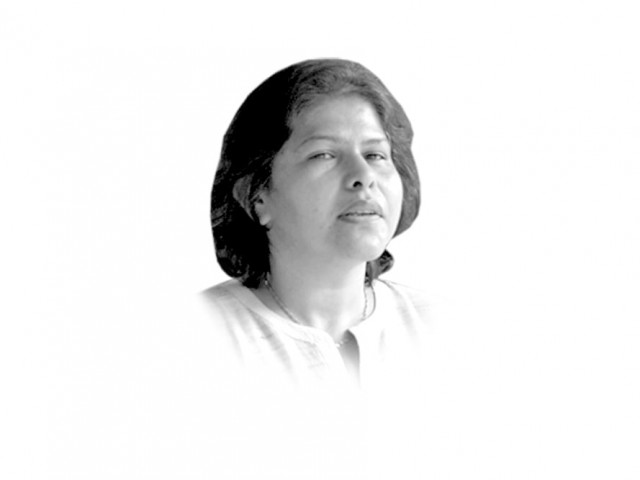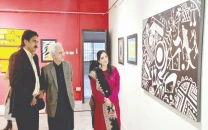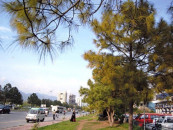Fighting a losing battle?
Question that liberals fail to ask is how, in absence of legwork, can they change mindset of Hamid's followers?

Fighting a losing battle?
The debate reminded me of a duel between renowned boxer Muhammad Ali and Japanese wrestler Antonio Inoki. The competition between the masters of their respective fields was a mismatch in which both men felt out of place — a wrestler fighting a boxer.
Both speakers spoke different political and social languages. The debate at best was a zero-sum game since neither side made inroads into the other’s camp. While the liberals patted Sirmed, Hamid’s followers pelted abuses at her. Today, Ms Sirmed is an endangered species who may not even be helped by the ‘liberal’ PPP government in case she gets into life-threatening trouble.
The liberal discourse is based on certain assumptions starting from the impression that a large majority of people subscribe to liberalism, which they express by not voting for religious parties. This is a fallacy. In fact, the post-Salmaan Taseer reaction proved that a number of PPP jiyalas did not sympathise with what Taseer stood for and the party was absolutely clueless about mustering support for Taseer, leave alone Aasia bibi. Second, for the liberals it is a particular group, political party or agenda that personifies liberalism. For instance, a human rights activist sent around a message recently asking people to demonstrate against the film censor board’s decision to ban a Pakistani film. This was seen as a decision taken under the influence of the religious right. However, the same person was hesitant to protest an act of blatant misdemeanour by the present government. There are many others who wouldn’t protest certain issues out of fear of being labelled as anti-liberal. So it’s not the issue which is important but the right tag.
The question that the liberals fail to ask themselves is that in the absence of any legwork to eradicate growing radicalism, such as having the will to change the curriculum or creating a social agenda tied with political objectives, how can anyone even begin to change the mindset of Zaid Hamid followers? Today, Jinnah’s August 11 speech does not mean anything except what our state-sponsored historian Akber S Ahmed calls political pragmatism. We could debate until the cows come home that Jinnah did not want a theocratic state. But the fact is that Pakistan’s underlying philosophy espoused a separation between ethnic communities on the basis of a religious identity. Having done that, neither Jinnah nor his Muslim League could claim sole ownership of a political narrative laced in religion.
The state, the political class and the bulk of the intelligentsia owned the religious identity-based politics to a degree that national identity became synonymous with religious identity. It’s due to the state’s ownership of this peculiar discourse that no one was able to convince the common man that the two-nation theory needed serious revision after the breakup of Pakistan in 1971. The inability to introspect even then made us put the responsibility solely on India’s doorsteps. Resultantly, Zulfikar Bhutto’s slogan of a ‘thousand years of war’ with India strengthened the age-old narrative. Similarly, it is false to argue that Musharraf encouraged liberalism through his policies as he was one big supporter of militancy. The fact is that all our leaders, be it civilian or military, have contributed to this selective narrative.
However, Pakistan needs to graduate from a two-nation theory to a one-nation narrative that is all-inclusive. It has to cut across religious-ideological, ethnic and sectarian divides. The Zaid Hamids of this country have to appreciate that the two-nation theory might have created a country, but it has run out of steam and must be replaced by slogans that can join people without coercion. An all-inclusive agenda will strengthen us even more than our neighbour India, whom we insist on contesting all the time. This also means that only the political group we support will not colour political and intellectual choices.
Published in The Express Tribune, September 4th, 2011.



















COMMENTS
Comments are moderated and generally will be posted if they are on-topic and not abusive.
For more information, please see our Comments FAQ